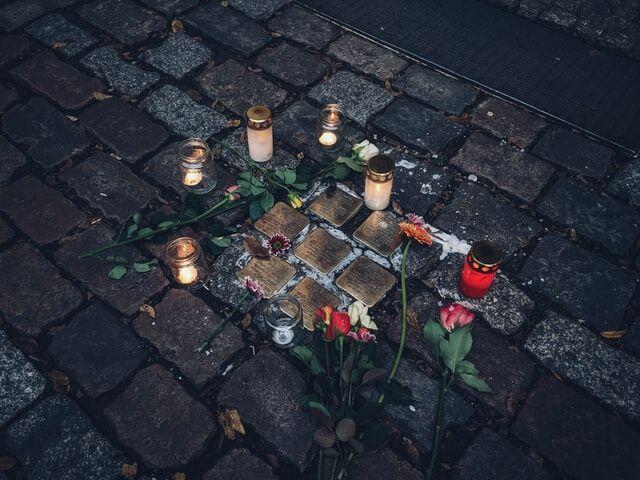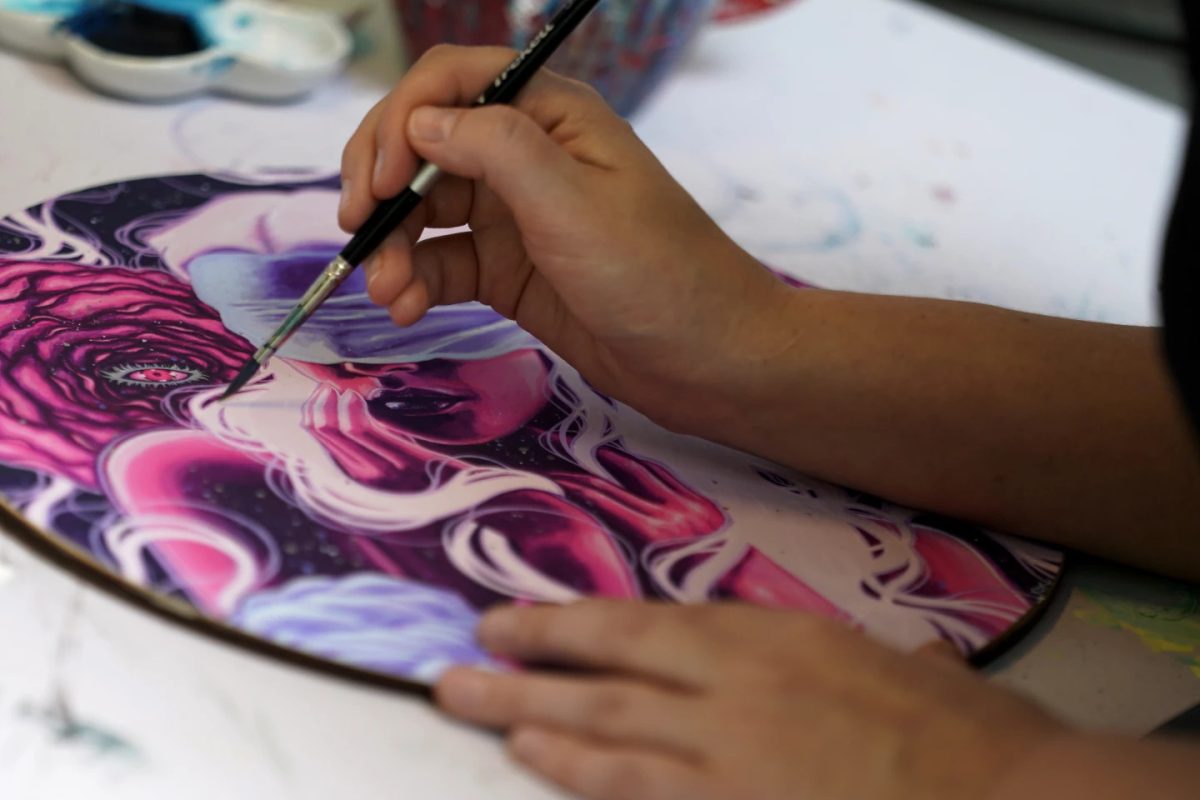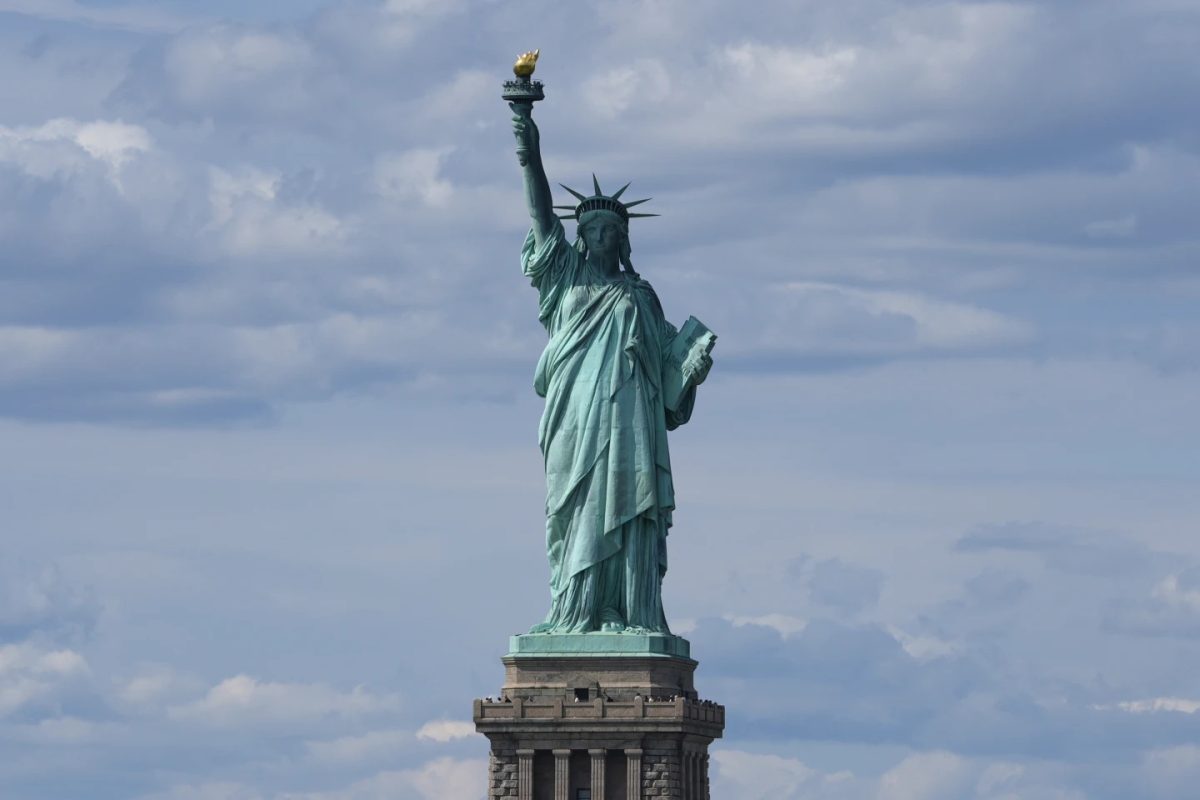When you hear the word anti-Semitism, what comes to mind?
Probably the Holocaust and the Nazis that perpetrated it. Maybe it’s the long lineage of anti-Jewish sentiment in western history, which lays the blame for everything from the Black Death to the Crucifixion of Christ at the feet of religious and ethnic Jews.
Perhaps you learned about it in history class and were led to believe that we’ve grown past it; that anti-Semitism “just doesn’t happen anymore.”
In the last five years, anti-Semites have made themselves quite comfortable in America, bolstered by politicians and pundits calling them “very fine people.” Literal neo-Nazis have come out of the woodwork wearing “Camp Auschwitz” merchandise and chanting “Jews will not replace us” at the January 6 insurrection and Charlottesville, respectively.
As great as it would be if prejudice against Jews had magically disappeared after the Holocaust, that just isn’t the case. In fact, American anti-Semitism is on the rise, reaching an all-time high in 2019 according to a report by the Anti-Defamation League.
“The total number of anti-Semitic incidents in 2019 increased 12 percent over the previous year, with a disturbing 56 percent increase in assaults,” the report stated. “The audit found there were, on average, as many as six anti-Semitic incidents in the U.S. for each day in the calendar year — the highest level of anti-Semitic activity ever recorded by ADL.”
As an ethnic Jew myself, son to a fully Ashkenazi Jewish mother, it’s disheartening to know that not only are Jews still being discriminated against but that we are being killed for simply existing.
Anti-Semitic jokes are normalized in society. So much so that when I heard them in high school, I didn’t think much of them. I even laughed at them. The long legacy of Jewish hate has become so ingrained in our culture that we sometimes don’t even bat an eye when it’s brought up.
“We listen and sometimes conversations lead to statements like ‘you are the first Jewish person I ever met!’ and ‘you are Jewish, and all Jews have money,’” said Barbara Rosen, my Ashkenazi Jewish grandmother. She’s from New York.
“We are living in an age that closely reminds Jews and other minorities that this is a Christian, white country. Every public prayer includes Jesus. We are told that this is a Christian country.”
Anti-Semitism is something many consider to be a thing of the past, something the Allies literally exterminated in World War II. However, hatred for Jews is something that’s existed for about as long as western civilization has. From the Egyptians through Rome and into the Spanish Inquisition, Jews have almost always been seen as a plague by the powers that be.
Even when Jewish immigrants came to America, they sat on a low rung of the social hierarchy. Forced into segregated communities like Manhattan’s Lower East Side, Jews faced hatred in America long before Hitler rose to power and used the group as a scapegoat for all of Germany’s problems.
In American society, names like Goldberg, Rosenberg and Rothstein have made many Jewish-Americans the targets of anti-Semitic hate crimes.
Seen as incompatible with American society, many Jews were forced to change their names to sound more like white Anglo-Saxon protestants, or WASPs. Through Anglicization, names like “Wonsal” became the surname “Warner,” masking the Jewish identities of many of America’s most prominent creators.
That’s why it might surprise you to know that Hollywood was originally established as a safe haven for Jewish-American artists who were excluded from the film industry in New York and still stands an example of a Jewish institution in a country still entrenched in anti-Semitism.
Anti-Semitism existed in the workplace, in schools and in public spaces. Validated and endorsed by quintessential American ‘icons’ like Henry Ford, anti-Semitism became the norm for many.
Hailed as the inventor of the modern automobile, Henry Ford was a raging anti-Semite who published a series of anti-Jewish pamphlets entitled “The International Jew.”
Ford’s hateful rhetoric caught the attention of certain fascists during the ideology’s rise in Europe.
“I regard Henry Ford as my inspiration,” Adolf Hitler told Detroit News in an interview in 1931. Hitler had a photograph of Ford above his desk. Today, the legacy of Ford’s American anti-Semitism “flourishes on the websites and forums of white nationalists, racists and others who hate Jews.”
In America, Jews were consistently seen as different, with their own section in the grocery store and a separate belief system than many of their neighbors. To many, Jews were the quintessential example of ‘the other’ that was changing America.
Even today, Jewish hate permeates the binary political spectrum. On the right, there are Republicans like Marjorie Taylor-Green that subscribe to Q-Anon — entrenched in anti-Semitic conspiracies like the Elders of Zion — and believe that California wildfires were caused by “Jewish Space Lasers.”
Conservatives who subscribe to far-right conspiracy theories equate the ‘satanic elite’ with Jews that they feel have too much control over both the media and the ‘deep state.’
On the other side of the political spectrum lies a certain sect of left-wing politics that equates the state of Israel with Judaism as a whole. Counting all Jews as Zionists encourages anti-Semitism among those who see Israel as illegitimately occupying Palestinian land.
It is incredibly disheartening to know that in a world where Jewish people have put forward so many accomplishments — including creating characters like Spider-Man, Superman and The Avengers —, anti-Semitism is not only alive but on the rise. Jewish Americans are increasingly targeted by extremists on both sides of the political aisle and sadly the trend doesn’t seem to be stopping anytime soon.
“However did such a small, isolated population survive intact for over 5,000 years?” My grandmother asks. “There must be a reason we survived, and for that reason, we have been selectively banished from the world for thousands of years.”
In a country where Henry Ford’s anti-Semitism is often dismissed in retellings of history as something of an anachronism and Hollywood’s Jewish roots are surprising, it’s easy to see how anti-Semitism is engrained in the DNA of western civilization.
It is such a potent force that it seems almost impossible to root out without addressing its origins as a historical fear — and hatred — of the unknown.
“Anti-Semitism is a poison,” my grandmother emphasized. “And it’s easily digested by many.”
Domenic Purdy is a 20-year-old journalism sophomore from Prairieville.
Opinion: Anti-Semitism still exists, as much as we would like to deny it
April 19, 2021








